In many ways Lewis Carroll’s 1865 compendium of literary nonsense is ideal material for ballet. We all like a story we can hum, even if we’re hazy on the details. And this story, with its topsy-turvy logic and anthropomorphic creatures, is stuffed with quirky detail, much of it surely never intended to go anywhere but over the heads of its original child readers.
Yes, it may have been written for and about a 10-year-old, but Alice Liddell was clearly a precocious little girl. If eye-boggling phantasmagoria on a scale approaching that of the Olympics opening ceremony is what you want from your Lewis Carroll, then Christopher Wheeldon’s extravagant three-act dance adaptation will hit the spot. It’s very busy, sometimes terrifying, and huge in every way.
Joby Talbot’s score, written for an orchestra so large the players must be severely cramped in the pit, is the magnificent driver of this beast, allocating a musical theme not only to each of the characters, but also to individual moods such as loneliness or joy. The shifting, shivery bitonality of the opening bars nicely anticipates the Wonderland weirdness to come, even though the actual opening scene is prosaically set at an Oxford garden party. Dramaturg Nicholas Wright’s dramatic framing of the story – proposing real-life 1862 models for the characters in Wonderland – is a major strength.
It’s really rather brilliant to have imagined the Knave of Hearts as the dishy under-gardener, sacked unfairly by Alice’s disapproving mother, who herself reappears as the vindictive Queen. But was it really necessary to make her psychotic, accompanied by Hitchcockian stabbing strings? The baby-shaking Duchess (quite mad from the start) comes accompanied by a bass trombone theme so grimly malevolent that I’m surprised any children in the audience didn’t burst into tears. Or perhaps they did and the trombones drowned them out.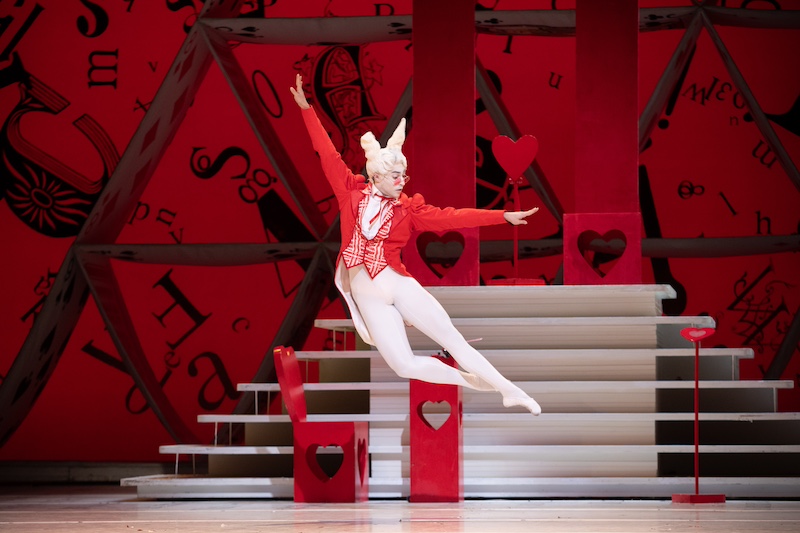 To be fair, there is masses of dance amid the Grand Guignol horror (did I mention the axe-wielding Cook and her sausage-machine?), but it takes second place to Bob Crowley's designs. It seems odd that epileptics are given official warning of the special effects, while those of a sensitive disposition are expected to suck up some pretty strong stuff. Gentler delights include a shape shifting Cheshire Cat, whose migrant body parts are carried about by dancers in black, and a Caterpillar comprising at least 10 pairs of legs travelling on pointe. I also loved the Frog and the Fish (with some terrific virtuosic leaping from Daichi Ikarashi and Leo Dixon respectively). The Fish continues gulping right to the end of the ballet. Snazzy projections designed by John Driscoll and Gemma Carrington take care of the rabbit hole (truly hallucinogenic), Alice’s variations in size, and a lot of fancy business involving playing cards which fill the entire stage from floor to ceiling with what appears to be a spectral game of patience.
To be fair, there is masses of dance amid the Grand Guignol horror (did I mention the axe-wielding Cook and her sausage-machine?), but it takes second place to Bob Crowley's designs. It seems odd that epileptics are given official warning of the special effects, while those of a sensitive disposition are expected to suck up some pretty strong stuff. Gentler delights include a shape shifting Cheshire Cat, whose migrant body parts are carried about by dancers in black, and a Caterpillar comprising at least 10 pairs of legs travelling on pointe. I also loved the Frog and the Fish (with some terrific virtuosic leaping from Daichi Ikarashi and Leo Dixon respectively). The Fish continues gulping right to the end of the ballet. Snazzy projections designed by John Driscoll and Gemma Carrington take care of the rabbit hole (truly hallucinogenic), Alice’s variations in size, and a lot of fancy business involving playing cards which fill the entire stage from floor to ceiling with what appears to be a spectral game of patience.
You cannot fail to admire the ingenious craft of Wheeldon’s creative teammates, whom he took with him on his next and, to my mind, considerably more worthwhile project, The Winter’s Tale. For all its clever ideas and brilliant execution (no pun intended), his Alice ballet lacks heart. At no point does one feel any fear for either the young heroine (Francesca Hayward on opening night) or her beau (William Bracewell), despite his ludicrous death sentence. Nor did I feel anything at all for the White Rabbit (James Hay, pictured above) and his unexplained nervous distress. Mark the contrast with The Mad Hatter’s Tea Party, a vastly lower-budget hip hop version by Kate Prince that made me both laugh and cry at the Linbury Theatre the other week. Now that was a show with heart, and some of Lewis Carroll’s wordplay too.

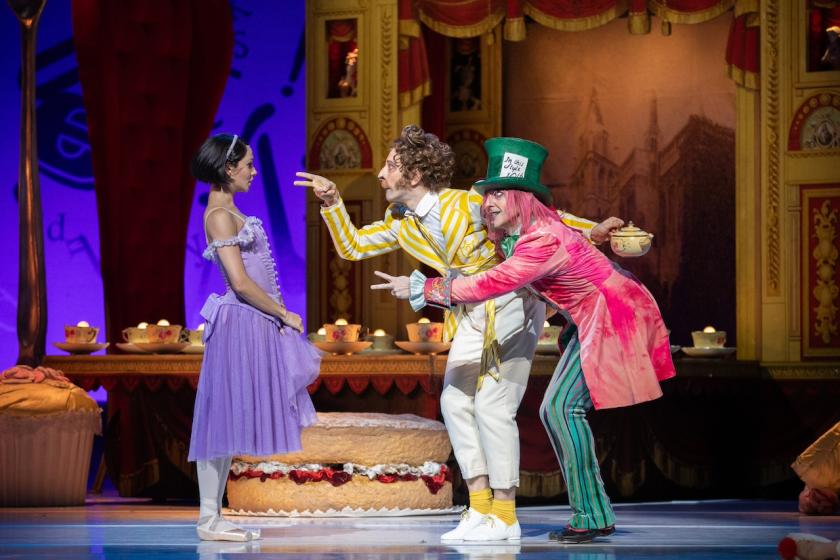


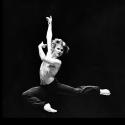
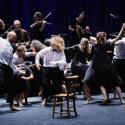
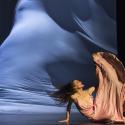
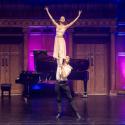
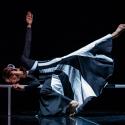
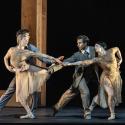
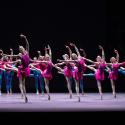
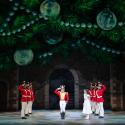
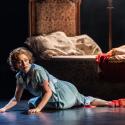

Add comment